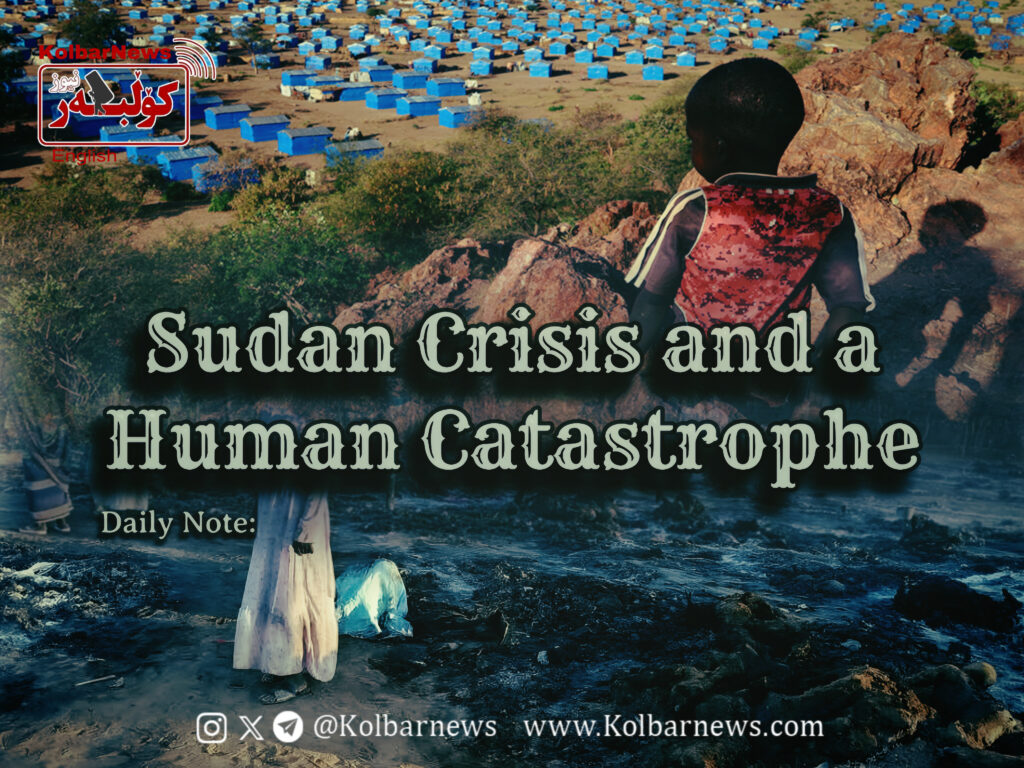
Sudan, a country in northeastern Africa with a population of about 45 million, has since April 2023 witnessed one of the worst humanitarian disasters of the modern world. The armed conflict between the Sudanese Armed Forces, commanded by Abdel Fattah al-Burhan, and the Rapid Support Forces, led by Mohamed Hamdan Dagalo (Hemedti), has dragged the country into a human catastrophe.
Sudan was under the authoritarian rule of Omar al-Bashir for 30 years. During this period, al-Bashir, in order to suppress various uprisings especially in the Darfur region used the Janjaweed militias, which later became the Rapid Support Forces (RSF). These militias were responsible for war crimes and mass killings in Darfur, which the international community at that time described as genocide.
In April 2019, widespread public protests led to the overthrow of al-Bashir. But instead of achieving freedom and establishing a civilian government, power was divided between the army and the so-called Rapid Support Forces.
Tensions over integrating the RSF into the regular army and disputes over political power-sharing eventually led to armed conflict. On April 15, 2023, violent clashes began in Khartoum and other cities. The war quickly spread from the capital to other regions, especially Darfur, Kordofan, and Greater Khartoum. The RSF forces took control of vast areas of the country, including most of Darfur and key parts of Khartoum.
According to various estimates, tens of thousands of people have been killed. Some sources estimate the number of victims in these recent conflicts alone to be around 150,000. Many of those killed are civilians who have fallen victim to targeted attacks, bombings of residential areas, and ethnically motivated massacres.
At the same time, waves of displacement have been triggered by the brutal warfare of the rival groups. More than 11 million people have been displaced within the country. About 3 million have fled to neighboring countries such as Chad, Egypt, Ethiopia, and South Sudan, making this the largest displacement crisis in the world.
More than 25 million people (half the population) are facing severe food insecurity. The United Nations has warned of a widespread famine. Agriculture, the main source of livelihood, has collapsed, and the food distribution system has disintegrated.
The healthcare infrastructure has collapsed. More than 70% of hospitals are unusable or destroyed. Infectious diseases such as cholera, measles, and malaria have spread, while there are acute shortages of medicine and medical equipment, and maternal and infant mortality have risen sharply.
Sexual violence has been used widely as a weapon of war, especially by the Rapid Support Forces. Thousands of women and girls have fallen victim to systematic sexual violence.
In Darfur, ethnically motivated mass killings, particularly against non-Arab tribes, have been reported. These events are reminiscent of the Darfur genocide in the early 2000s. Both sides have deliberately bombed residential areas, hospitals, markets, and public places.
Meanwhile, the United Arab Emirates has been accused of providing military and financial support to the Rapid Support Forces, while the Egyptian army supports the Sudanese Armed Forces. The involvement of Russia and its mercenaries in the region, as well as their interests and influence in Ethiopia and Eritrea, have made the crisis more complicated and prolonged the war.
Today, unfortunately, the Sudan crisis has turned into a “forgotten crisis.” International media coverage has been very limited, and global attention has shifted to other crises. The United Nations and aid organizations have received only a small portion of the funding needed for humanitarian assistance. Access to affected areas is extremely difficult due to ongoing fighting and security restrictions.
Mediation efforts by the African Union, the United Nations, and regional countries have so far failed. Temporary ceasefires have been repeatedly violated. The refugee influx into neighboring countries, which themselves face economic and security challenges, has created enormous pressure. The collapse of the central government has paved the way for the spread of terrorist groups and networks for human and drug trafficking.
Sudan’s economy, already fragile, has completely collapsed. Inflation, unemployment, and poverty have sharply increased.
The Sudan crisis is a humanitarian catastrophe of vast dimensions, rooted in decades of dictatorship and the division of power among military institutions. The international community has so far failed to respond adequately to this crisis. Millions of innocent people are facing famine, disease, and violence before the eyes of the world.
The solution to this crisis lies not in the military victory of either side, but in pressuring the foreign supporters of the warring factions and in serious support for the Sudanese people on their path to freedom.
History will record this tragedy as one of the great failures of the international community in the 21st century unless immediate and effective actions are taken to end this human nightmare.

